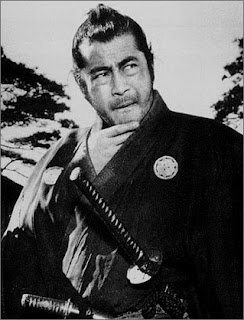Melbourne arthouse is dead. Born of wonder and raised against odds it thrived for decades in this city until the mid 2000s when its organs failed one by one and was left in the gutter to wheeze its last. The art of cinema is now held entirely in the mainstream plexes which tower o'er the cine landscape like Easter Island heads. And down on the level of pure competition - one/zero, presence/absence, win/loss - the right thing has happened.
It angers and saddens me but, try as I might, I cannot argue with it. For starters, however much I might revile the impersonal trough that is the supersize popcorn movies of the cinematic Goliath that is the mainstream, I can't blame it for killing off the little David with his feeble stone-loaded ging. The arthouse cinema took so little of the mainstream's audience that the giant never noticed the piffling stings of the stones even when they got near tender bits. No, the arthouse was allowed to die alone by its own flock. People just stopped going. Goliath won and David shrugged. Why?
It's not as though the content was so very different. For every Irreversible playing in a fleapit held together by love of form there was a crowd pleasing Ringu or goofy Boxing Helena. An autopsy of the most bloat budgeted rubbish made to pay for a Hollywood A-lister's home extension will reveal that art runs through its veins. The difference is not an easy one like civilisation vs brutality, taste vs entertainment or quality vs garbage.
The range alone of cultures and traditions that the arthouses used to supply left an effortless impression of freedom of expression that the mainstream would find suicidal. This diversity of approach, the continuing lesson that cinema is a blank canvas rather than a set of standards is the legacy of arthouses that leaves behind snobbery they might have engendered.
This article offers a range of reasons which I can't argue with. EXCEPT it sneaks in the phrase poor-quality films. Where does that come from? Here's another from the Age, also from the time of the Lumiere closure. One smug proprietor looking down his nose at the low end seating and heating. Really? That's why people who supported it for so long have now abandoned it, a fear of cold buttocks? In exchange for a cultural experience that might well be intellectually, politically, socially or even just aesthetically liberating the price of rugging up against fashion is too high? Really? Rea-fucking-lly?
Well it gets worse. Now that the small cinemas have gone the diversity has been forgotten and a new generation of filmgoers has emerged that neither knows nor cares about cinema beyond its function within the service economy. All we have left of cinema's extended possibilities flickers in the next room like a cupcake candle; individuals with modems and credit cards and a select fewer benefiting from the meagre light.
And that's it. A scattered few. An ageing scattered few.
So is it that? Cinephiles just getting old and ricketty and whose health cannot stand the torments of the fleapit shall nurture all their passion for alternative cinema in safety deposit boxes that are doomed to inaccessible dementia? Will none among their progeny or younger kin stand and demand a few stories from the barricades of when they fought the big one before Michael Bay bombed Pearl Harbour anew and did more damage to it than the Imperial Japanese Air Force ever did? All gone now?
I don't accept that. Alternative cinema has lost its community but the makings of that community or a new one are still out there. Attendances at Shadows are flexible and favour the warmer parts of the year (whaddaya gonna do?) but the people who come remain interested in these tales from under the hood and takes from off the wall. Showing the mighty Harold and Maude to a small number of mainly younger folk last year resulted in a new entry to a few more top ten film lists. No one had a problem with the wonkiness of the production values of It Happened Here as the audacity of its concept towered above that little pile of nuts and bolts. Ok, so Noriko's Dinner Table bored when it didn't baffle but the same director's Suicide Circle delighted. The spirit really is willing (even if the goosebump riddled flesh is weak).
Maybe all that's needed is a shift in the paradigm. Maybe we just need to drop the choc tops and remember Brecht's line about rapidly setting up his theatre. You don't have to give up the mainstream. I didn't. There's no need to. But there's everything to gain by accepting the diversity that shines through the difficulties of alternative cinema.
I am one of the ageing cinephiles I mentioned above but I'm not a sentimental one. I dinnae care a mere zot if the film I'm seeing is the result of light through celluloid or was born in a hive of ones and zeros. (I'm similarly unromantic about vinyl LPs which experience I'm happy to be rid of). Similarly I find concepts like perfect film or classic cinema to be unhelpful and near meaningless standards. A film is a film. How do you react to it? Don't know? Well, go and find out. Shadows isn't the only one. Go forage among the what's on schedules and see what's buzzing under the radar and start doing some of your own buzzing. Go on!
 |
| The late lamented Lumiere |





